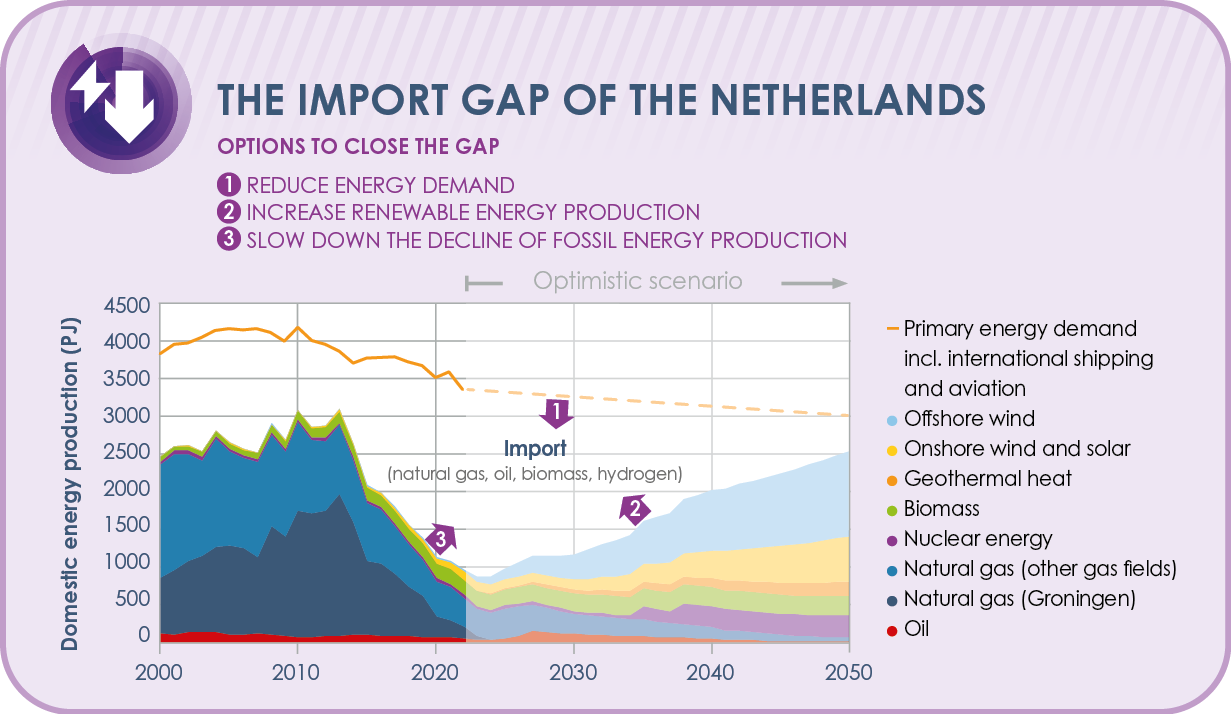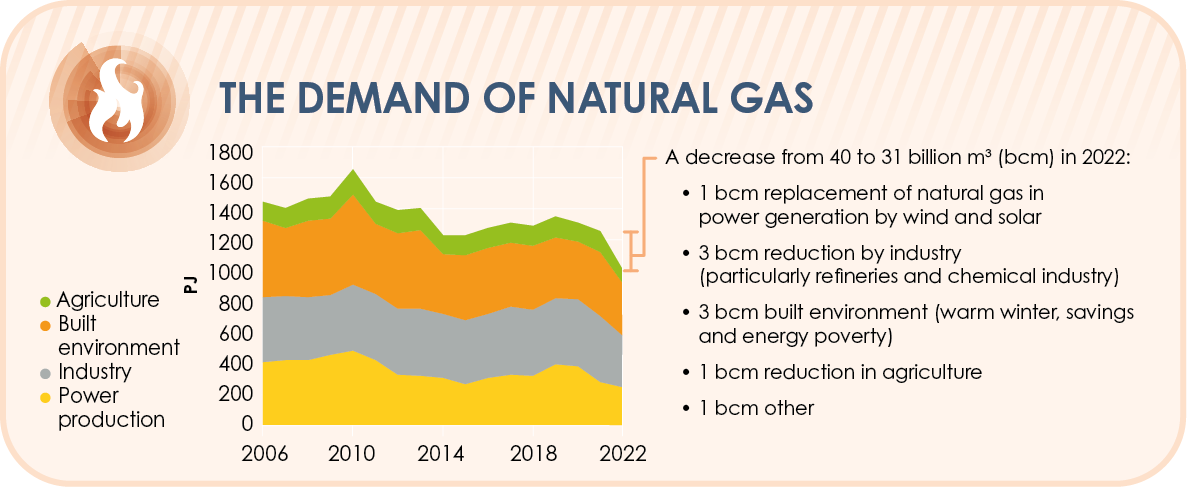The Netherlands is committed to a CO2-neutral energy supply by 2050. During this energy transition, the Netherlands will still need gas. The use of natural gas will decrease in the coming years due to energy savings and a switch to renewable sources. In this energy transition, natural gas is a flexible and necessary source of energy. Alternative energy sources such as wind, sun or biogas will not yet be able to take over the role of gas in the coming decades.
Gas will remain a relevant energy source until at least 2050, as shown by all scenarios. Gas production in the Netherlands is cheaper and less polluting than importing gas from abroad. It also ensures a more independent energy supply.
What do we use gas for?
We use gas for transport, for generating electricity and for heat (infographic: Energy in numbers 2024). Natural gas is still the most important source of energy for heating our homes and buildings. Natural gas also provides the high temperatures needed in industry. ONE-Dyas sees climate change as one of the greatest challenges of our generation. In the Netherlands, we are working hard on making our energy system more sustainable. The aim of this energy transition is to achieve a CO2-neutral energy supply by 2050.
Why gas from the North Sea?
With the closure of the Groningen field, it has become more important to extract natural gas from small fields. The GEMS project contributes to this. In a letter to the Dutch Lower House of Parliament, the then Minister Wiebes of the Ministry of Economic Affairs and Climate Policy indicated that he preferred producing gas from small fields to importing gas from abroad. Important arguments for this are that gas production from small fields in the Netherlands is less damaging to the climate than imported gas, contributes directly to the Dutch economy and provides greater security of supply for our energy.





